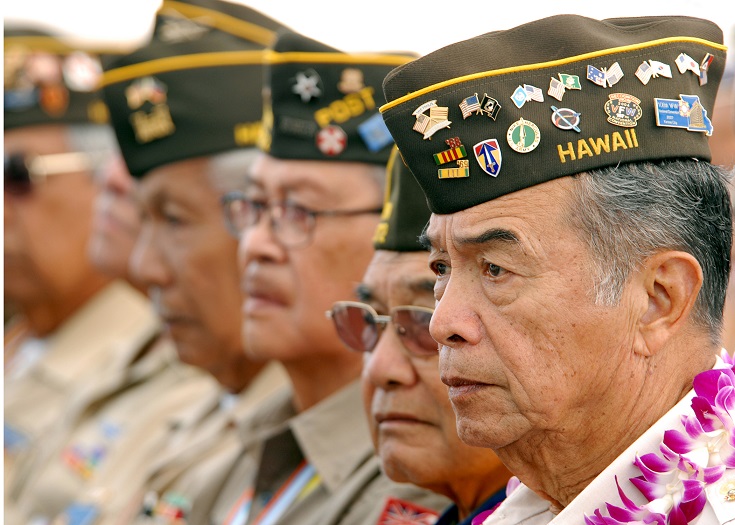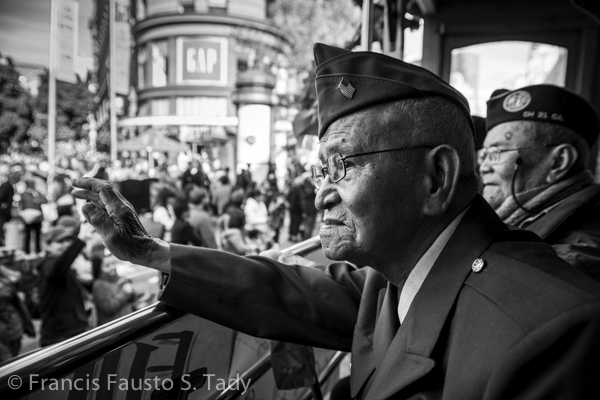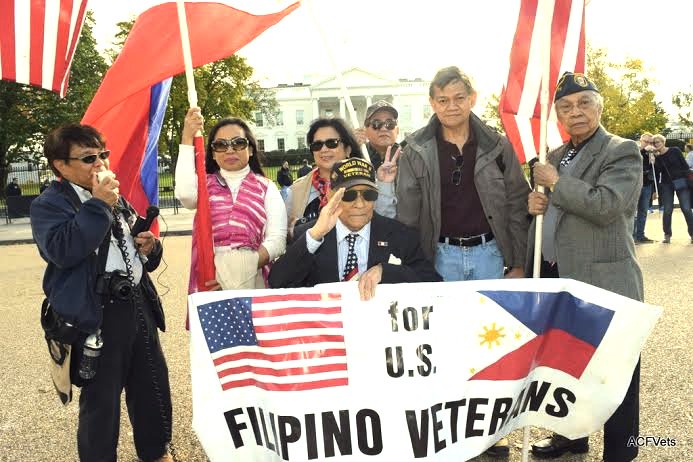
Are you a family member of one of the estimated 2,000 – 6,000 Filipino World War Veterans living in the United States?
If you are, the odds are that you have been waiting many, many years to be reunited with your parents.
With an estimated population of nearly 1,000,000 Filipino-Americans living in California, it is likely that a few hundred may have originated with World War II veterans who made their way into the United States after the war ended.
If this is your family history, you are probably interested in knowing more about the parole program for family members of Filipino World War II Veterans, a program which holds out the possibility of family reunification during the pendency of the green card process.
Instead of continuing to wait 20+ years for their visas to become current, it is now possible for many to now come to the country, remain here legally with their parents, as they wait their turns to file for permanent residency.
Being a Filipino family immigration attorney, I prepared this set of this set of curated news articles.
They will help you understand what the program is, who the program helps, and what types of problems parole applicants may face.

Parole Visas Okayed For PH Families Of Filipino World War II Vets In U.S.
Persistent Advocacy Was The Key To Filipino Parole Victory
On May 6, 2016, the Department of Homeland Security (DHS) announced certain family members of Filipino World War II veterans will be able to apply for parole under a new immigration program and reunite with their parents living in the United States.
The program was spurred by the consistent advocacy by the Asian Americans Advancing Justice (AAJC), the Filipino Veterans Equity Center (EVAC), and the Filipinos For Justice.
“Their diligence and persistence”, emphasized J.T. Mallonga, Chairperson of the National Federation of Filipino American Associations (NaFFAA), made the new policy possible “so our veterans and their families can be with each other without further delay.”
He added, “Our courageous heroes, who have waited for up to 20 years, deserve the opportunity to be with their children. They must not suffer the pain of separation in the twilight of their years.”
Mallonga was right about having earned the veteran rights to be with their children. But he was wrong about the FWVP history. The battle for Filipino family reunification has been a 75-year ordeal for World World veterans, following U.S. promises broken shortly after the end of World War II.
Kin Of Pinoy WWII Veterans May Now Come To U.S. Under Parole Program
FWVP Beneficiaries Will Need To Secure Two Approvals
On June 8, 2016, the program officially kicked off. Certain family members of Filipino World War II veterans – those with approved immigrant visa petitions – could now come to the U.S. while they wait for their visas, which in some cases entail a 20+ year wait. Grants of parole for these family members are made on a case-to-case basis.
In limited cases, certain eligible relatives will be able to seek parole on their own behalf when their World War II veteran relatives and his or her spouse are both deceased.
In actuality, relatives who seek parole will need to be seek approval twice before entering the United States.
First, the U.S. Citizenship and Immigration Services (USCIS) will review each case individually to determine whether authorizing parole is appropriate.
Second, when each individual arrives at a U.S. port of entry, the U.S. Customs and Border Protection (CBP) will again review each case to determine whether to parole the individual.

Challenges In Applying For Filvets U.S. Parole Visa
Will FWVP Policy Exclude Visa Overstayers?
The FWVP is intended to help family members who are living in the Philippines. However, some adult Filipino children entered the U.S. many years ago to take case of their elderly parents on legal visas. But they did not leave, instead opting to remain in the U.S.
Being overstays, they are subject to being deported. Yet, for them to return home to apply for the parole program will expose them to the three year and ten year inadmissibility bars for living in the U.S. without permission – which defeats the purpose of the parole program and undermines their ability to win permanent residence.
Will these individuals be allowed to apply for parole without leaving the U.S.? Or should they simply remain in the U.S. and attempt to seek adjustment of status when their priority date becomes current? However, if their parents die, will they still qualify for the option of seeking a humanitarian reinstatement of the revoked petition?
Parole Program Allows Kids And Grandkids Of Filipino Vets To Come To The U.S. Sooner
Most Likely Obstacles For Parole Applicants
This article points out some of the primary problem areas for Parole applicants.
They include:
- The FWVP only grants parole. It is not equivalent to a visa. Although parole has the same effect as a visa, allowing an adult child of Filipino veterans to legally enter the United States, it does not directly help to establish permanent residency.
- To qualify for parole under the FWVP, the relatives of Filipino veterans cannot have any criminal history.
- If both a Filipino veteran and his spouse die before parole is granted, their children may self-apply but the government must agree to reinstate the immigrant relative petition filed on behalf of the children.
As Filipino WWII Immigration Program Begins, Rules May Be Sticking Point For Vets
Will Identifying A Veteran’s Military Service Be Problematic?
To be sure, qualifying for parole will not be simple. Applying for immigration programs is never as simple as it sounds.
For instance, with the FWVP, the process of documenting a veteran’s qualifying service will be the same as that used for the equity lump sum payouts given to the veterans in 2009.
In that situation, many Filipino veterans who were recognized by 1946 army lists were not included in a revised 1948 list. As with the Filipino Veterans Equity Compensation Act, the problems could lead to the disqualification of many families from the parole program.
Update: Nearly two years after the initial publication of this article, it is clear the problems noted above have affected parole application success.
USCIS statistics show that only 579 individuals have sought FWVP benefits. Of this total, 269 applications have been approved, 186 have been denied, and 124 are pending.
That’s a success rate lower than 50% (46.4%) and a denial rate of nearly 1/3 (32.1%) of all applications.
By Carlos Batara, Immigration Law, Policy, And Politics




